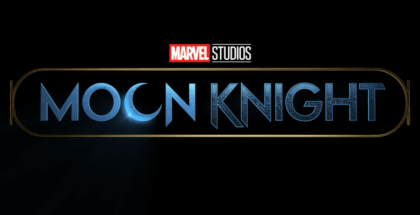Alien: Earth: Ambitious, fascinating and terrifying
Review Overview
Ideas
9Execution
9David Farnor | On 17, Aug 2025
It’s hard to believe that it’s taken until 2025 for the Alien franchise to reach the small screen – but boy, has it been worth the wait. The sci-fi horror saga began all the way back in 1979 with Ridley Scott’s iconic, low-key horror, which was set in the year 2122 – a timeframe that now feels like it’s on our doorstep, if the Earth survives that long. Ushering us either there or into oblivion just in time is Alien: Earth, set in the year 2120. But, as the title suggests, we’re not jetting off to some farflung planet to discover the terror of the franchise’s unsettling xenomorph. Oh no, it’s coming here for us instead.
Hawley – who has previously given us Fargo and Legion – is no stranger to playfully reworking established ideas into striking new forms, and he doesn’t disappoint here, throwing tons of fascinating ideas at the screen, many of them within the opening title card. Flashing green text informs us that humanity is in the middle of an intelligence race – between cyborgs (humans with tech enhancements), synths (artificial androids) and, most intriguing of all, hybrids (human minds uploaded into synthetic bodies). Unsurprisingly, it’s the latter that gives us our way into events – and sets the stage for a post-Prometheus dive into humanity, consciousness and no doubt lots of chest-ripping horror.
Sydney Chandler is mesmeric as Wendy, the ambiguously young and old hybrid who has had a dying girl’s consciousness uploaded into an adult body – under the watchful, and unnerving, eye of Kirsh (an enigmatic Timothy Olyphant, just on the chilling side of thoughtful). She’s thrilled, and he’s very calculating, when the opportunity arises to help in the aftermath of a spaceship crash. You can probably guess what’s in the cargo.
While the Synths fall under the remit of Prodigy – a sci-fi firm led by the arrogant young genius Boy (Samuel Blenkin) – the ship is owned by the familiar and formidable Weyland-Yutani Corporation, who have their own interests in the tecnology (and life-forms) on board. The ship is overseen by the typically ruthless cyborg Morrow (Babou Ceesay), whose orders are to protect Weyland-Yutani’s property at all costs. Complicating the battle for control of the crash site further is the presence of Joe (the always-excellent Alex Lawther), the brother of the girl whose consciousness was uploaded into Wendy.
The result is far from the claustrophobic, contained format of Scott’s Alien, but the show’s success lies in how it never loses a sense of that teeth-gnawing dread. The set pieces are harrowingly orchestrated, from confined ship corridors that leave people with nowhere to run and scream to tower block carnage that makes The Raid look like Trumpton – and gives us a dose of Aliens-worthy action.
When we’re not seeing extra-terrestrials inflict gut-churning nastiness, Hawley drops frames of massacres-to-come into the mix, reminding us that in this saga of survival horror, humans are rarely the ones to make the final cut. The cast are nonetheless brilliant, with Olyphant and Chandler anchoring events emotionally and Ceesay bringing a stern stoicism to his hard-to-read Morrow, while Blenkin toys with the future of civilisation with all the petulant immaturity of a childish tech bro.
The show doesn’t skimp on the creature front either. As well as the classic monsters we know and cower from – including a pleasingly physical man-in-a-suit vibe to the xenomorphy action – are a suite of new gribblies that are simultaneously beautiful and alarming. Most unsettling of all is an eyeball with tentacles that puts squeamishly more anatomically specific spin on the OG Facehugger.
The result is to Alien what Andor is to Star Wars: it is a pitch-perfect translation of the franchise into a TV series, expanding the mythos with open-ended questions to explore – from politics to artificial intelligence – while giving enough time to soak up action and terror as well as atmosphere. It’s assembled with a style that feels retro-futuristic without getting too advanced or outdated, and a confidence that’s utterly beguiling. If Alien: Covenant was Scott’s fun farewell to his chapter of the franchise and Alien: Romulus was a back-to-basics rediscovery of what made the franchise work, Alien: Earth is a revival of the franchise for a whole new era.





















